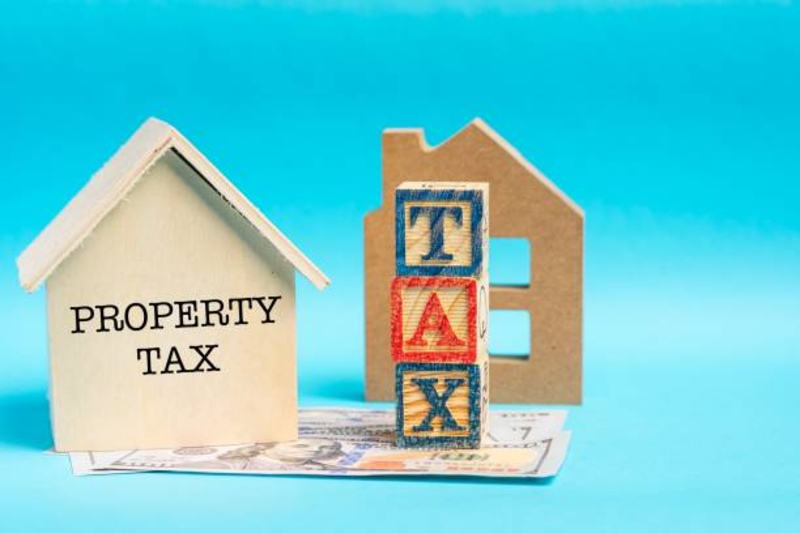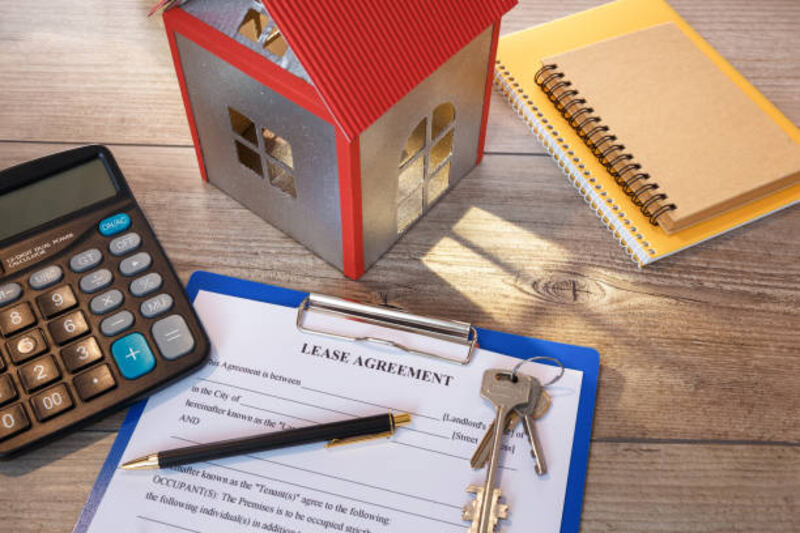Smart Tax Strategies: Utilizing Your Rental Property for Tax Deductions
Dec 18, 2023 By Triston Martin
Owning a rental property can become a viable source of income, but it also opens up new avenues to save on taxes. The realm of property-related tax deductions might seem complex, but understanding and leveraging these strategies can significantly enhance your financial gains. This guide, "Smart Tax Strategies: Utilizing Your Rental Property for Tax Deductions," aims to demystify these strategies, providing property owners with practical and effective ways to make the most out of their investments.
Definition and basics of rental property tax deductions:
Rental property tax deductions refer to certain expenses that can be deducted from your taxable income as a landlord. These deductions, set forth by the Internal Revenue Service (IRS), serve to alleviate the financial burden of property maintenance and management. The list of deductible expenses is extensive and includes a variety of costs such as mortgage interest, property tax, operating expenses, depreciation, and even certain travel expenses related to property maintenance and management. However, property owners must keep accurate records of these expenses for validation purposes. Understanding these tax deductions can prove beneficial in managing your rental property and maximizing your returns.
Types of Rental Property Tax Deductions:

There are various types of rental property tax deductions that landlords can take advantage of, including:
- Mortgage Interest: Landlords can deduct the interest paid on their mortgage for their rental property. This deduction is particularly beneficial in the early years of ownership when the majority of mortgage payments go towards interest.
- Property Taxes: Similar to homeowners, landlords can also deduct the property taxes they pay on their rental property.
- Depreciation: As a landlord, you can deduct the cost of depreciation for your rental property over its useful life. This deduction allows you to spread out the cost of buying or improving the property and can significantly reduce your taxable income.
- Repairs and Maintenance: Expenses incurred for repairs and maintenance on your rental property can be deducted in the year they were incurred. This includes things like plumbing repairs, painting, and replacing appliances.
- Travel Expenses: If you travel to manage or maintain your rental property, these expenses can also be deducted. This includes mileage, airfare, hotel costs, and meals.
Eligibility for Rental Property Tax Deductions:
To be eligible for rental property tax deductions, you must meet specific criteria set by the IRS. First and foremost, the property in question must be a rental property. This means you, as the owner, must rent it out for at least 15 days in a given tax year. If you use the property as a personal residence and rent it out for less than 15 days, it is not considered a rental property by IRS standards. Similarly, you must actively participate in the rental activity, which involves making management decisions such as approving tenants, setting rental terms, and arranging for repairs. It's also vital to remember that only expenses incurred for the rental aspect of your property can be deducted. For example, if you live in one part of a duplex and rent out the other, only the expenses related to the rented portion can be deducted.
The Role of Personal Use in Rental Property Tax Deductions:
Personal use of a rental property can significantly influence your eligibility for tax deductions. The IRS stipulates that if you use your rental property for personal purposes for more than the greater of 14 days or 10% of the total days it was rented to tenants at a fair rental price, it's considered a personal residence. This means you can only deduct rental expenses to the extent of your rental income. However, if you limit your personal use to less than this threshold, the property is considered a rental property, and you can deduct your rental expenses against any type of income, not just your rental income.
It's also worth noting that personal use includes use by family members and anyone paying less than a fair rental price. So, landlords looking to maximize their tax deductions should carefully monitor and manage personal use of their rental property.
Criteria to qualify for rental property tax deductions:

Apart from meeting eligibility requirements, certain criteria must also be met to qualify for rental property tax deductions. The most critical criterion is that the expenses being deducted must be deemed "ordinary and necessary." This means the expense must be common and accepted in the rental property business and directly related to its operation. Additionally, these expenses must also be reasonable in amount. For instance, claiming an excessive amount for repairs or maintenance expenses may raise red flags with the IRS. It's therefore crucial to ensure all deductions are supported by proper documentation and keep detailed records of your property-related expenses.
The Importance of Rental Income:
The amount of rental income generated by your property also plays a role in determining the tax deductions you can claim. If your rental expenses exceed your rental income, you may be able to deduct these losses from other sources of income, such as wages or self-employment income. There are certain limitations and restrictions on this type of deduction, so it's best to consult with a tax professional to ensure you're following the proper guidelines.
Calculating tax deductions:
To accurately calculate your rental property tax deductions, follow these steps:
- Keep accurate records of all expenses related to your rental property throughout the year.
- Determine if you meet the eligibility requirements for rental property tax deductions, including using the property as a rental and actively participating in its management.
- Monitor personal use of your rental property and ensure it does not exceed the threshold set by the IRS.
- Determine which expenses are considered "ordinary and necessary" for your rental property business.
- Calculate your total rental income and determine if it exceeds your rental expenses.
- If your rental expenses exceed your income, consult with a tax professional to see if you qualify for additional deductions or credits.
- Use proper documentation and records when claiming rental property tax deductions to avoid any issues with the IRS.
Conclusion:
Owning a rental property can be a lucrative investment, and understanding the tax deductions available to landlords is crucial for maximizing its financial benefits. By keeping detailed records of expenses, monitoring personal use, and following proper guidelines, landlords can take advantage of various deductions to reduce their taxable income. If you're unsure about your eligibility or how to calculate these deductions properly, it's best to consult with a tax professional for guidance. With the right knowledge and preparation, rental property tax deductions can help landlords save money and achieve financial success in their real estate ventures.








